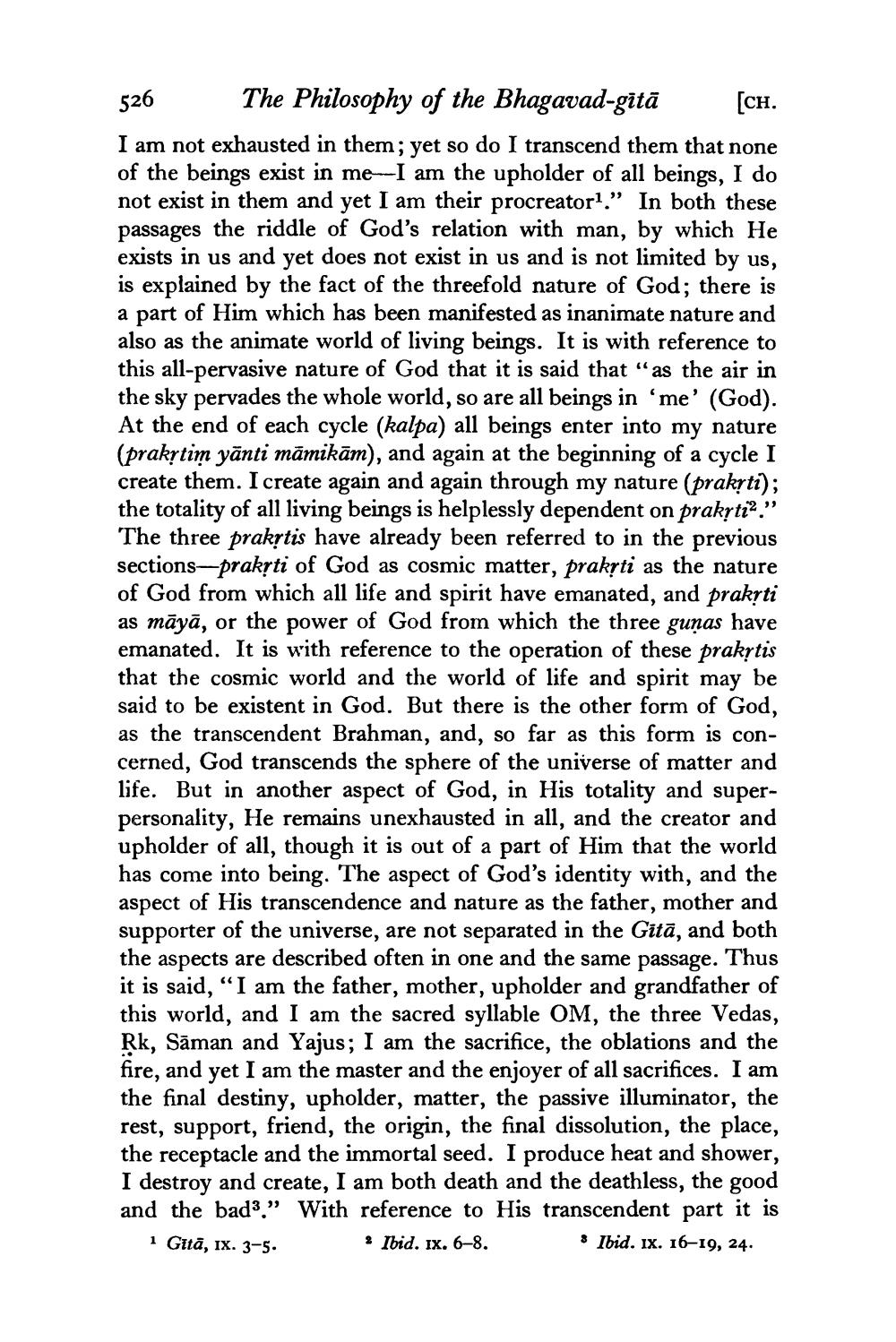________________
526
The Philosophy of the Bhagavad-gitā [CH. I am not exhausted in them; yet so do I transcend them that none of the beings exist in me I am the upholder of all beings, I do not exist in them and yet I am their procreator1.” In both these passages the riddle of God's relation with man, by which He exists in us and yet does not exist in us and is not limited by us, is explained by the fact of the threefold nature of God; there is a part of Him which has been manifested as inanimate nature and also as the animate world of living beings. It is with reference to this all-pervasive nature of God that it is said that “as the air in the sky pervades the whole world, so are all beings in 'me' (God). At the end of each cycle (kalpa) all beings enter into my nature (prakytim yānti māmikām), and again at the beginning of a cycle I create them. I create again and again through my nature (prakrti); the totality of all living beings is helplessly dependent on prakrtia." The three prakrtis have already been referred to in the previous sections-praksti of God as cosmic matter, prakrti as the nature of God from which all life and spirit have emanated, and prakrti as māyā, or the power of God from which the three guņas have emanated. It is with reference to the operation of these praktis that the cosmic world and the world of life and spirit may be said to be existent in God. But there is the other form of God, as the transcendent Brahman, and, so far as this form is concerned, God transcends the sphere of the universe of matter and life. But in another aspect of God, in His totality and superpersonality, He remains unexhausted in all, and the creator and upholder of all, though it is out of a part of Him that the world has come into being. The aspect of God's identity with, and the aspect of His transcendence and nature as the father, mother and supporter of the universe, are not separated in the Gitā, and both the aspects are described often in one and the same passage. Thus it is said, “I am the father, mother, upholder and grandfather of this world, and I am the sacred syllable OM, the three Vedas, Řk, Sāman and Yajus; I am the sacrifice, the oblations and the fire, and yet I am the master and the enjoyer of all sacrifices. I am the final destiny, upholder, matter, the passive illuminator, the rest, support, friend, the origin, the final dissolution, the place, the receptacle and the immortal seed. I produce heat and shower, I destroy and create, I am both death and the deathless, the good and the bad3.” With reference to His transcendent part it is i Gitā, ix. 3-5. 2 Ibid. ix. 6-8.
* Ibid. ix. 16–19, 24.




